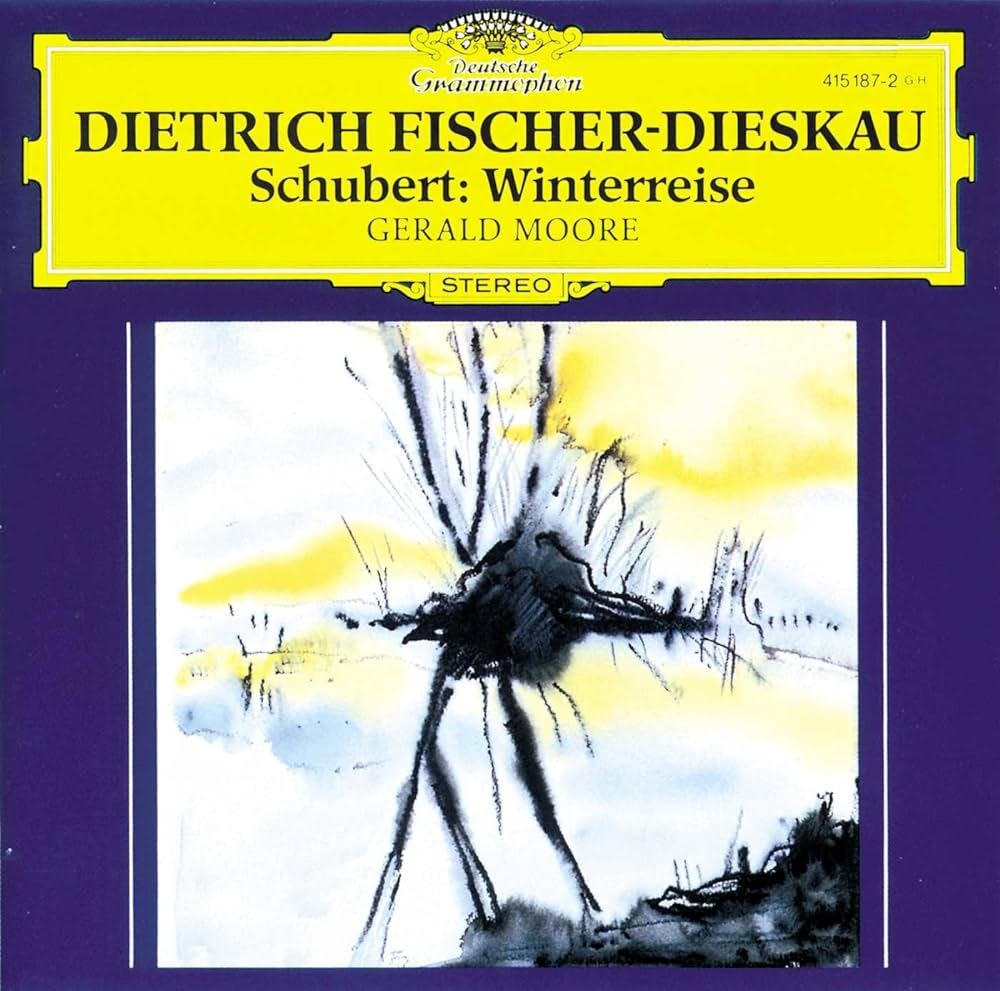EVERY GENRE PROJECT - February 23 - Lied
Genre of the Day - Lied
Album of the Day - Winterreise by Franz Schubert, as performed by Dietrich Fischer-Dieskau (voice) and Gerald Moore (piano)
First off, today’s genre has nothing to do with the act of lying—that’d just be a SZA song. Just kidding—I don’t really buy into the notion that SZA is a liar. She’s just a Scorpio, and the truth can get a little convoluted. Anyways, lied literally just means song in German. A lot less evocative than yesterday’s fado, which in Portuguese translates to fate, speaking to the sense of eternality of the songs’ mourning tones. Lied can refer to a lot of different phases of German music, but for today’s purposes the genre we’re looking at is the German romanticist turn in the 1800s as constructed by composers like Franz Schubert and Robert Schumann.
Before the beginning of the recorded music era and albums that had no distinct concept, good composers were lucky to have patronage to support their artistic ideas, allowing them to develop highly conceptual and thoughtful opuses. Like most of romanticism’s music, there’s a sense of high drama that permeates throughout. Schubert came across the lyric poems of Wilhelm Müller and was instantly enchanted by the tragic story. Perhaps more coincidentally tragically, Schubert dropped Winterreise the same year Müller died and he likely didn’t even know that his words had been set to such beautiful music. Franz Schubert proceeded to then also die. Certainly looms large over the music, but it’s already quite tragic. This is music for a depressive episode so unthinkable you literally feel as if you’ve contracted syphilis in 1820s Germany.
Winterreise means winter journey, and follows the desolate but universal journey of a man navigating heartbreak in the bleak midwinter in Germany pre-climate change and pre-electricity. One shudders. It’s easy to feel why Schubert would feel a need to express his own sorrow through such lonesome music: he knew he was dying of syphilis and spent the last six years of his life laboring on this piece. Though—and I know I often say this on this column—the language barrier was certainly preventative for me in capturing the true emotional richness of the lyrics, a translation will have to suffice. Throughout, nature is a poignant metaphor for heartbreak: the river that was once sweet love flowing silently encased in a layer of ice, a weathervane on the dreaded ex’s house symbolizing inconsistency. It’s incredible poetry, btu some of it really is just serious emo shit: in one poem, the narrator deludes himself into thinking he’s wiser because the frost has turned his hair gray, only to return to misery once it melts.
The same way as Stevie Ray Vaughan talks about the origins of electric Texas blues and how the sound of the instrument aimed to evoke commonplace situations such as someone walking down the street or a train going by, Schubert applies his masterful touch with similar symbolic flourishes, from melodies aimed to imitate that of an instrument called the hurdy-gurdy in a song about a beggar who plays one (where are the hurdy-gurdy players today), animal sounds along the way, the little sparkly notes in Irrlicht. These are subtle touches, and not ones that I necessarily would’ve picked up without a lot of context, but it shows that learning about music can rarely detract rather than expand our appreciation of it. How else would I have known how artfully mournful and universally resonant this opus was?




